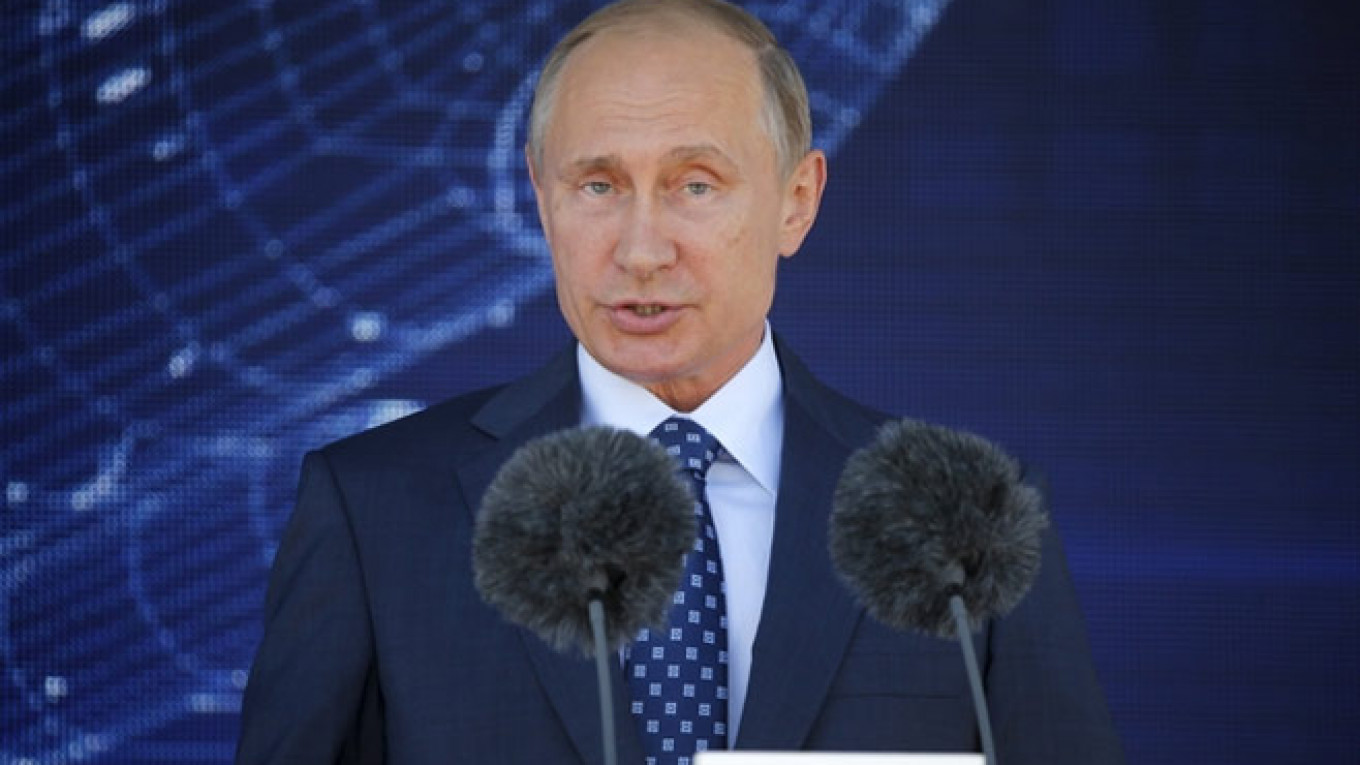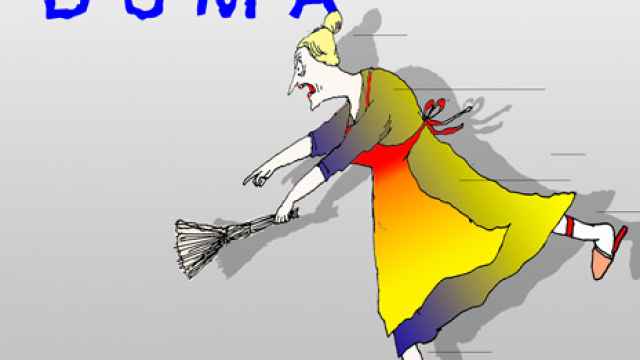Soon, Muscovites will get to choose the location of an enormous, 24-meter tall monument of Prince Vladimir the Great. They will be able to vote via a smartphone app between three different locations in the capital. Two other options on the ballot, "Experts should decide" and "I don't know," basically mean "Leave it to the authorities." The choice "Don't put it anywhere" is conspicuously absent.
In July the Russian leadership commemorated the millennium of the death of Vladimir in 1015 with a grand reception in the Kremlin.
In the same month a group of senators from Russia's upper house of parliament submitted a draft law to parliament instituting two new commemorative dates: April 19, the Day of the Accession of Crimea, Taman, and Kuban into the Russian Empire (1783) and Sept. 9, a Memorial Day for the Veterans of the Crimean War (1853-1856).
The accompanying commentary to the law explains that the dates reflect "authentic geopolitical events" which compelled Catherine the Great to bring these territories under Russian rule on the request of their citizens and that this "became the legitimate form of the accession of Crimea into Russia."
The two key concepts here are "authenticity" and "legitimacy." Of course 1783 should really read 2014: the April date was selected for its proximity to the so-called Crimean Spring, and "Catherine the Great" is a stand-in for an entirely different Russian leader.
In the same way, everyone can see that Vladimir the Great is also a stand-in for President Vladimir Putin. The Russian elite really wants to honor him with monuments and feast days but it has to do so in roundabout fashion. Why is that Russia cannot erect a rotating monument to Putin, just as Turkmenistan did for its first president, or rename St. Petersburg University Putin University, just as a major university in Astana has been named after Kazakhstan's President Nursultan Nazarbayev? The prohibition is both obvious and hard to formulate.
First, Russia's rulers are acting in a special-ops style because most of them are themselves siloviki. For them an element of secrecy and surprise is key to all political decisions.
Under this special services logic, this year a presidential decree instituted Feb. 27 as a Special Operations Forces Day holiday. Why this date? The government newspaper Rossiiskaya Gazeta told its readers, "Just recall what happened where this time last year, and how it ended." The new holiday is a not-so-subtle celebration of the Crimean takeover.
The phenomenon of what we can describe as Russia's "authoritarian bashfulness" can also be explained by political theory. Professor Barbara Geddes, a prominent researcher of authoritarian regimes, classifies Russia as a "personalist autocracy," as distinct from a single-party or military autocracy.
Most personalist regimes are less durable than single-party dictatorships and more susceptible to shocks. Personalist regimes need to continually buy off their elites: when the rewards for loyalty run out, the ranks of supporters suddenly evaporate.
There is a subtle but important contradiction in this regime. Even if autocracy is centered on one leader, the legitimation of authority is still procedural, power is acquired and transferred through elections and the interpretation of written law.
This does not mean that the government abides by its own laws, but it must at least pretend to abide by them, and it violates them only within certain limits. The fact that the authorities feel the need to falsify elections or bend the constitution is proof of this.
The head of state has to behave like a revolutionary leader — even if he isn't one — accomplishing great feats, vanquishing enemies, conquering new lands, discovering treasure. A charismatic leader must live by cult of personality alone, because he has no other legitimate grounds for holding his office.
Yekaterina Schulmann is a political scientist. This is an abridged version of a comment that originally appeared on Carnegie Moscow's Eurasia Outlook blog.
See also on the Eurasia Outlook blog:
The Changing Price of Loyalty: What does Vladimir Yakunin's Resignation Signify?
Cultural Terrorism in Moscow: The Enemies of Classical Art in Russia and their Protectors
Destroy at Any Cost: The Political Rationale Behind Russia's Food Burnings
A Message from The Moscow Times:
Dear readers,
We are facing unprecedented challenges. Russia's Prosecutor General's Office has designated The Moscow Times as an "undesirable" organization, criminalizing our work and putting our staff at risk of prosecution. This follows our earlier unjust labeling as a "foreign agent."
These actions are direct attempts to silence independent journalism in Russia. The authorities claim our work "discredits the decisions of the Russian leadership." We see things differently: we strive to provide accurate, unbiased reporting on Russia.
We, the journalists of The Moscow Times, refuse to be silenced. But to continue our work, we need your help.
Your support, no matter how small, makes a world of difference. If you can, please support us monthly starting from just $2. It's quick to set up, and every contribution makes a significant impact.
By supporting The Moscow Times, you're defending open, independent journalism in the face of repression. Thank you for standing with us.
Remind me later.







